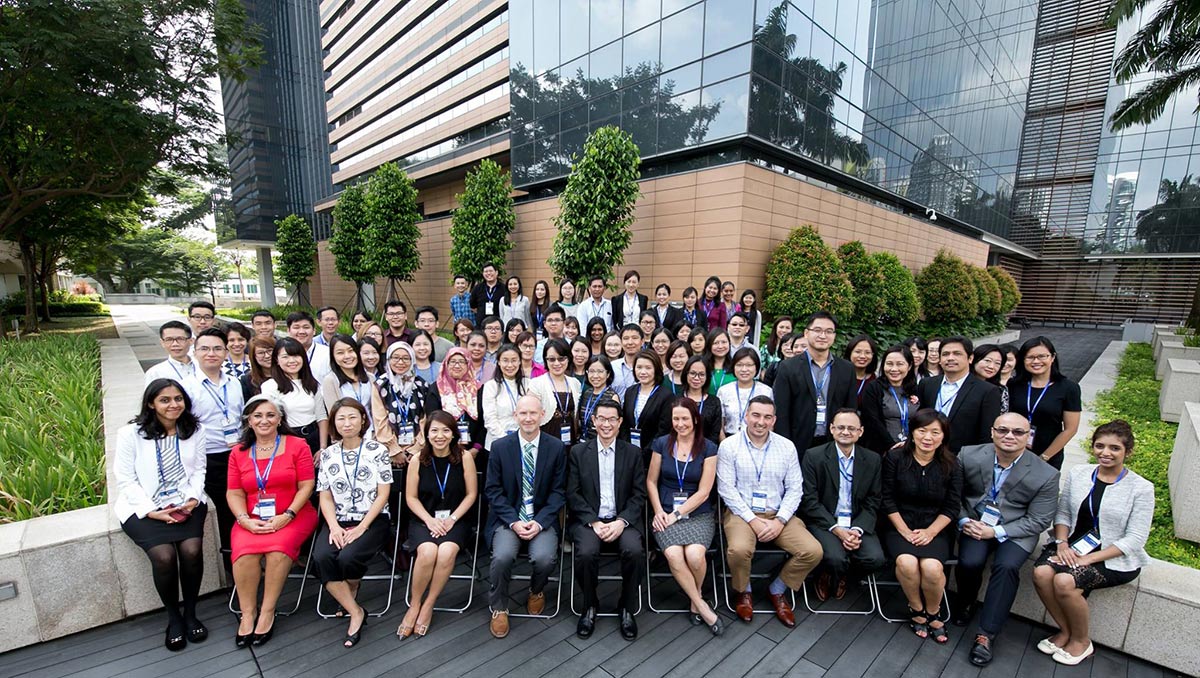Around The Globe
In Progress: Regulatory Convergence of Advanced Therapies in the Asia-Pacific
Silke Vogel
Senior Associate Dean
Graduate Studies
Deputy Director
Hozanna Ngoh
Medical Writer
Duke-NUS Medical School, Singapore
dvanced therapies – which include cell, tissue and gene therapies – are at the forefront of biomedical innovation with prominent advances in the scientific, technological and regulatory domains. In August 2017, the first chimeric antigen receptor T-cell (CAR-T cell) therapy was approved for the US market for targeted cancer immunotherapy, and CAR-T cell therapy developers have recently gained entry into the European market as well. On other fronts, the discovery and utility of the CRISPR-Cas9 genome-editing tool has uncovered new potential for more precise gene therapies.
Advanced Therapies in Asia-Pacific
In Asia-Pacific, the regulatory environment is heterogeneous, with varying levels of maturity and capacity across the national healthcare and healthcare products regulatory systems. Not unexpectedly, regulatory oversight of advanced therapies reflects this heterogeneity. Countries such as Japan and Korea have established specific regulatory processes for advanced therapy products—or “regenerative medicine”—and have approved a number of such products in their respective markets.
However, taking a closer look at Southeast Asia, developed economies such as Singapore and Malaysia have established advanced therapy regulations, while emerging markets in the rest of the region have yet to develop specific regulatory oversight for such products. On an exciting note, in March 2018 the Thailand Food and Drug Administration issued an announcement which introduced a proposed regulatory framework for advanced therapy products. This framework comprises four modules covering product classification, registration pathways, product vigilance system, and guidelines and standard development. This is an encouraging development for the region.

Faculty and participants at the 2018 Duke-NUS Medical School Centre of Regulatory Excellence regulatory workshop on advanced therapies.
APEC LSIF RHSC: Facilitating Access through Promoting Regulatory Convergence
Parallel to efforts by individual regional NRAs, work is ongoing to facilitate access to advanced therapies in Asia-Pacific through the APEC Life Sciences Innovation Forum (LSIF) Regulatory Harmonization Steering Committee (RHSC). The LSIF RHSC was established to “promote a more strategic, effective and sustainable approach to harmonization of medical product regulations,” with a goal to achieve regional regulatory convergence by 2020 and thereby facilitate uniform market access to innovative medical products in the region. Acknowledging that strengthening regulatory capability supports regulatory convergence, the RHSC advanced the concept of establishing regulatory training Centers of Excellence (CoE) to provide platforms for sharing information as well as to introduce a sustainable model for wider regional and global impact.
Advanced therapy is one of seven priority work areas identified by the RHSC to work towards regulatory convergence and is championed by the Health Sciences Authority of Singapore (HSA). As part of the overall roadmap to achieve the goal of regulatory convergence, a training roadmap was developed for carrying out annual CoE (Center of Excellence) training workshops from 2017 to 2020.
In addition to introducing and providing updates on advanced therapy regulatory frameworks in various jurisdictions around the world, the training roadmap also covers topics across the product lifecycle, from product development and manufacturing to clinical trials, marketing authorizations, and post-approval activities. The curriculum of subsequent workshops may be adjusted based on results from assessments of training effectiveness as well as changes in the training needs and priorities of the APEC economies.
Working with the RHSC and HSA Singapore, the Duke-NUS Medical School Centre of Regulatory Excellence (CoRE) in Singapore has been designated a pilot RHSC CoE for regulatory training in advanced therapies. In this capacity, CoRE conducted two workshops from 17 – 19 July 2017 and 23 – 25 July 2018. Both events were well-attended, with diverse representation from multiple stakeholder groups including regulators, regulatory affairs professionals, policy makers, other industry partners and associations, clinicians, researchers, and academia. Participants hailed from 13 APEC economies, which also included nine ASEAN member states.
Key Takeaways
- Health and regulatory stakeholders in Asia-Pacific, including Southeast Asia, recognize the need to facilitate access to innovative advanced therapies and are eager to strengthen regulatory capability in this area to keep up with the science and stay relevant.
- Regular regional engagements, such as through CoE training workshops, are valuable in sharing knowledge and best practices in product development and regulation, while at the same time fostering regulatory convergence by promoting use of international standards and guidance.
- Notwithstanding the promising medical advances made with advanced therapies, safety remains a top concern. Emphasis is placed on ensuring quality and consistency in manufacturing and conducting long-term safety monitoring of patients. Stakeholders raised the need to develop international standards for advanced therapies to streamline processes, reduce costs, and promote quality and consistency.
Work in Progress: Staying Committed
Achieving regulatory convergence is not easy. Sustaining regional efforts to engage and collaborate across boundaries can be complicated by individual organizational capacity challenges, limited access to global expertise, and varying national health priorities set against each country’s political backdrop. Moreover, the field of advanced therapy is evolving rapidly, and urges stakeholders to be perceptive, anticipate challenges, and be ready to adapt quickly. Regional and global platforms such as the APEC LSIF RHSC’s initiatives help stakeholders mitigate these challenges through continued engagement within a community of like-minded partners and shared access to a network of experts, thus reinforcing and sustaining commitment to long-term regulatory convergence.

